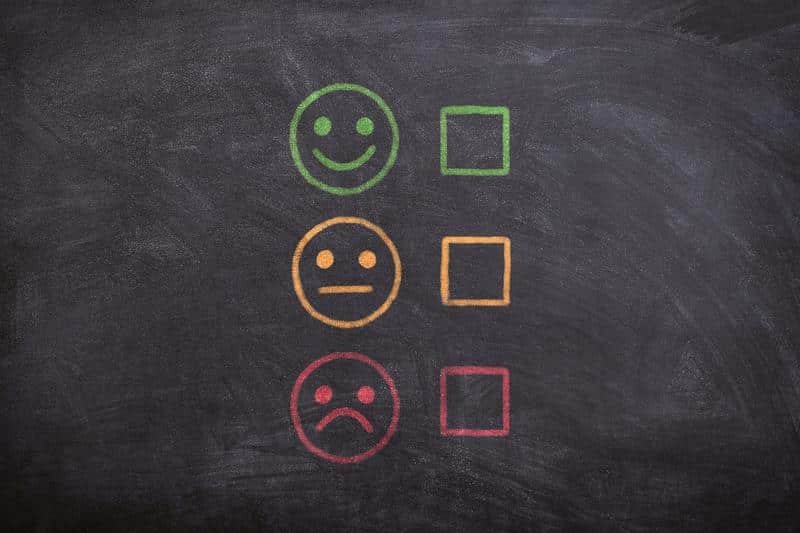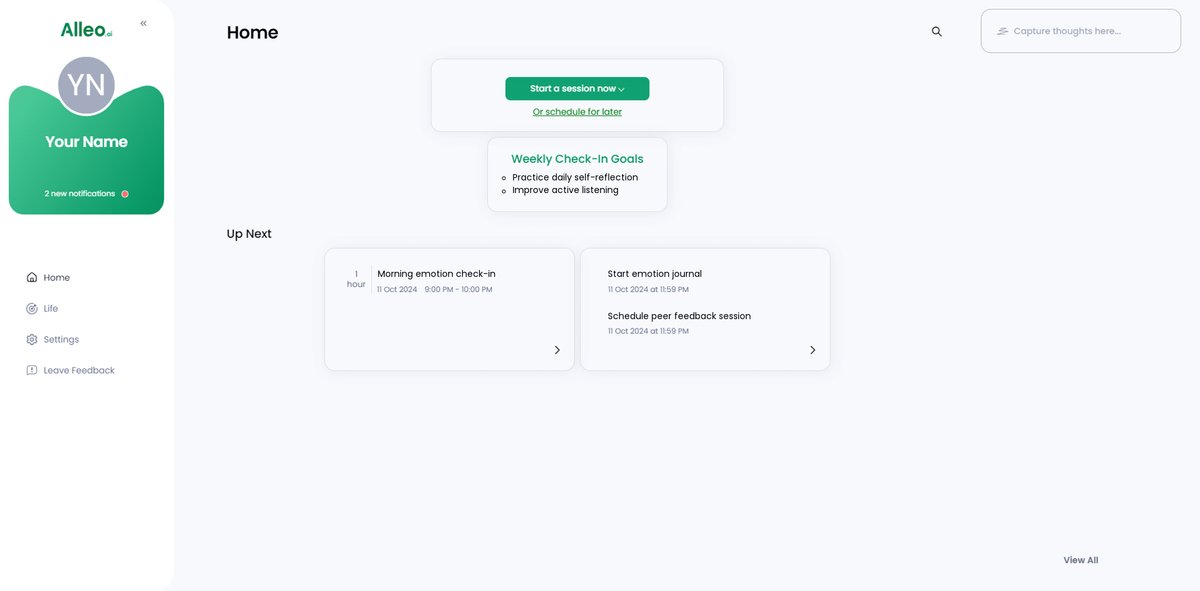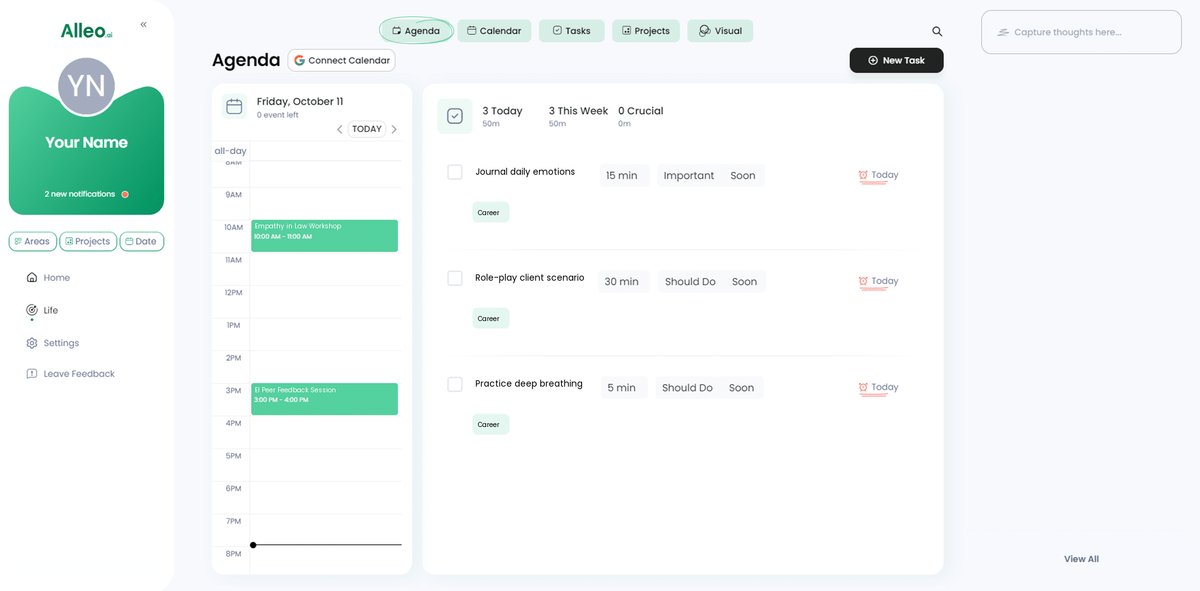How Lawyers Can Boost Emotional Intelligence for Better Client Relationships
Are you struggling to connect with your clients and feeling overwhelmed by the demands of your legal practice? Many lawyers seek to improve emotional intelligence to address these challenges.
As a life coach, I’ve helped many lawyers navigate these challenges. I understand the importance of emotional intelligence (EI) in legal practice and how it impacts lawyer-client communication skills.
In this article, you’ll discover strategies to enhance your EI, improve client relationships, and manage stress in the legal profession. We’ll explore practical steps like self-reflection, active listening for lawyers, and role-playing challenging scenarios to build interpersonal skills for attorneys.
Let’s dive in to explore how lawyers can improve emotional intelligence and provide more client-centered legal services.

The Challenge: Emotional Intelligence in Legal Practice
Many lawyers find it difficult to stay attuned to their clients’ needs. This often stems from a constant focus on their own stresses and emotions, hindering their ability to improve emotional intelligence in legal practice.
Such self-focus can create barriers in building trust and empathy with clients, impacting lawyer-client communication skills.
In my experience, lawyers often struggle with managing emotions in the legal profession during high-stress situations. This can lead to misunderstandings and strained attorney-client relationships.
Imagine being unable to connect with a client during a pivotal moment, highlighting the importance of interpersonal skills for attorneys.
It’s painful and frustrating. But it doesn’t have to be this way. Lawyers can improve emotional intelligence to enhance client-centered legal services.

Strategic Steps to Enhance Emotional Intelligence for Lawyers
Overcoming this challenge requires a few key steps. Here are the main areas to focus on for lawyers to improve emotional intelligence and make progress:
- Practice Daily Self-Reflection on Emotions: Reflect on your emotions each morning for better understanding and self-awareness for legal professionals.
- Engage in Active Listening Exercises with Clients: Improve your listening skills to connect better with clients and enhance lawyer-client communication skills.
- Seek Feedback on Emotional Responses from Peers: Regularly discuss your emotional responses with trusted colleagues to build interpersonal skills for attorneys.
- Implement Stress Management Techniques Regularly: Use techniques like deep breathing and meditation to manage stress and emotions in the legal profession.
- Role-Play Challenging Client Scenarios: Practice difficult interactions to prepare for real-life situations and improve conflict resolution in lawyer-client interactions.
- Keep an Emotional Intelligence Journal: Track your emotional experiences and progress in a journal to enhance emotional intelligence in legal practice.
- Attend Workshops on Empathy in Legal Practice: Participate in workshops to enhance your understanding of empathy and build trust with legal clients.
Let’s dive in to explore how lawyers can improve emotional intelligence and provide client-centered legal services!
1: Practice daily self-reflection on emotions
Practicing daily self-reflection on your emotions is a powerful way for lawyers to improve emotional intelligence and enhance their effectiveness in legal practice.
Actionable Steps:
- Set aside 10 minutes each morning to reflect on your emotions and their causes, improving self-awareness for legal professionals.
- Use mindfulness apps to guide your reflection and maintain consistency, supporting emotional intelligence in legal practice.
- Write down your emotional triggers and patterns in a journal, enhancing interpersonal skills for attorneys.
Explanation:
These steps matter because understanding your emotions helps lawyers improve emotional intelligence, leading to improved client interactions and better lawyer-client communication skills.
Reflecting daily can uncover patterns in your emotional responses, aiding in stress management and empathy in attorney-client relationships. For more on the benefits of self-awareness in legal practice, check out this article.
Starting each day with self-reflection sets a positive tone for effective client communication, supporting client-centered legal services and building trust with legal clients.

2: Engage in active listening exercises with clients
Engaging in active listening exercises with clients is crucial for lawyers to improve emotional intelligence and strengthen relationships in legal practice.
Actionable Steps:
- Practice paraphrasing what clients say to ensure you understand their concerns accurately, enhancing lawyer-client communication skills.
- Use non-verbal cues like nodding and maintaining eye contact to show you are fully engaged, demonstrating empathy in attorney-client relationships.
- Set goals for each client interaction, such as focusing solely on listening without interrupting, to improve emotional intelligence in legal practice.
Key benefits of active listening for lawyers include:
- Improved client trust and rapport, essential for building trust with legal clients
- Better understanding of client needs, crucial for client-centered legal services
- Enhanced problem-solving abilities, vital for conflict resolution in lawyer-client interactions
Explanation:
These steps matter because active listening builds trust and demonstrates empathy, which are essential for effective client communication and for lawyers to improve emotional intelligence.
By practicing active listening, you can improve your ability to understand and respond to clients’ needs more effectively. For more on improving communication skills, check out this article.
Implementing these strategies can transform your interactions with clients, leading to stronger relationships and better outcomes in legal practice.
![]()
3: Seek feedback on emotional responses from peers
Seeking feedback on your emotional responses from peers is essential for lawyers to improve emotional intelligence and foster personal and professional growth in legal practice.
Actionable Steps:
- Schedule regular check-ins with a mentor or trusted colleague to discuss your emotional responses and enhance interpersonal skills for attorneys.
- Create a peer feedback group where lawyers can share experiences and provide constructive criticism to improve lawyer-client communication skills.
- Use anonymous surveys to gather honest feedback from colleagues about your emotional behavior and self-awareness as a legal professional.
Explanation:
These steps matter because honest feedback helps lawyers improve emotional intelligence, identify areas for improvement, and build better client relationships in legal practice.
Regular peer interactions can provide new perspectives and enhance emotional intelligence in legal practice. For more insights, check out this article on professional development for attorneys.
Embracing feedback can transform your approach to client interactions, fostering trust and empathy in attorney-client relationships.

4: Implement stress management techniques regularly
To enhance emotional intelligence, it’s crucial for lawyers to improve emotional intelligence by implementing stress management techniques regularly.
Actionable Steps:
- Incorporate deep breathing exercises into your daily routine to reduce stress and boost emotional intelligence in legal practice.
- Take short breaks throughout the day to practice relaxation techniques, enhancing self-awareness for legal professionals.
- Enroll in yoga or meditation classes to develop long-term stress management skills and improve interpersonal skills for attorneys.
Explanation:
These steps matter because managing emotions in the legal profession effectively allows you to maintain focus and empathy during client interactions, improving lawyer-client communication skills.
Regular stress management can lead to better emotional regulation and improved attorney-client relationships. For more insights, read this article on professional development for attorneys.
By prioritizing stress management, lawyers can improve emotional intelligence and create a more balanced and effective legal practice, enhancing client-centered legal services.
![]()
5: Role-play challenging client scenarios
Role-playing challenging client scenarios is a powerful way for lawyers to improve emotional intelligence and prepare for real-life interactions in legal practice.
Actionable Steps:
- Organize weekly role-playing sessions with colleagues to practice difficult client interactions and enhance lawyer-client communication skills.
- Use real-life scenarios to simulate emotionally charged situations and develop your responses, improving empathy in attorney-client relationships.
- Review and analyze each role-play session to identify areas for improvement and refine your approach to managing emotions in the legal profession.
Effective role-playing can help lawyers improve emotional intelligence by:
- Anticipating client reactions
- Developing empathetic responses
- Improving conflict resolution skills in lawyer-client interactions
Explanation:
These steps matter because they allow lawyers to improve emotional intelligence by practicing and refining their emotional responses in a controlled environment.
Role-playing helps attorneys anticipate challenges and develop strategies for managing them effectively, enhancing interpersonal skills for attorneys. For more on this, check out this article on overcoming communication barriers in legal practice.
By regularly engaging in role-playing, lawyers can build confidence, improve their client interactions, and provide more client-centered legal services.

6: Keep an emotional intelligence journal
Keeping an emotional intelligence journal can significantly improve your understanding and management of your emotions, helping lawyers improve emotional intelligence in their legal practice.
Actionable Steps:
- Record daily entries about your emotional experiences and interactions to enhance interpersonal skills for attorneys.
- Reflect on how different situations made you feel and how you responded, focusing on self-awareness for legal professionals.
- Set monthly EI goals and track your progress in the journal to improve lawyer-client communication skills.
Explanation:
These steps matter because tracking your emotions helps you identify patterns and areas for improvement. This practice leads to better emotional regulation and stronger client relationships, essential for building trust with legal clients.
For more insights, read this article on professional development for attorneys.
Consistently journaling can transform your approach to client interactions, fostering empathy and trust, crucial for providing client-centered legal services and managing emotions in the legal profession.

7: Attend workshops on empathy in legal practice
Attending workshops on empathy in legal practice can significantly boost your emotional intelligence, helping lawyers improve emotional intelligence and enhance their client-centered legal services.
Actionable Steps:
- Research and sign up for workshops focused on empathy and emotional intelligence in legal practice.
- Participate in group discussions and activities to deepen your understanding of empathy and interpersonal skills for attorneys.
- Apply the techniques learned in workshops to real client interactions to see tangible results in lawyer-client communication skills.
Key areas often covered in empathy workshops include:
- Understanding client perspectives and building trust with legal clients
- Communicating with empathy in attorney-client relationships
- Managing emotional responses and emotions in the legal profession
Explanation:
These steps matter because workshops offer structured learning and peer interaction, which can enhance your empathy skills. By actively participating, you gain practical tools for better client relations and conflict resolution in lawyer-client interactions.
For more insights, read this article on leadership development.
Implementing these strategies can dramatically improve your client relationships and overall practice, helping lawyers improve emotional intelligence and self-awareness for legal professionals.

Transform Your Legal Practice with Alleo
We’ve explored the challenges of improving emotional intelligence in legal practice. Did you know you can work directly with Alleo to help lawyers improve emotional intelligence and make this journey easier and faster?
Setting up an account with Alleo is quick and easy. First, create a personalized plan tailored to your emotional intelligence goals, focusing on enhancing lawyer-client communication skills and building trust with legal clients.
Then, work with Alleo’s AI coach to overcome specific challenges in managing emotions in the legal profession. The coach will follow up on your progress in developing interpersonal skills for attorneys and handle changes.
You’ll receive regular text and push notifications to keep you accountable as you focus on self-awareness for legal professionals and active listening for lawyers.
Ready to get started for free? Let me show you how to improve emotional intelligence in legal practice!
Step 1: Log in or Create Your Alleo Account
To begin your journey towards improved emotional intelligence in legal practice, log in to your existing Alleo account or create a new one to access personalized coaching and tracking tools.

Step 2: Choose “Building better habits and routines”
Select “Building better habits and routines” as your goal to develop consistent practices that enhance your emotional intelligence and improve client relationships. This aligns with the article’s strategies for daily self-reflection, active listening, and stress management, helping you create a more empathetic and effective legal practice.

Step 3: Select “Career” as Your Focus Area
Choose “Career” as your focus area to enhance your emotional intelligence in legal practice, addressing challenges like client communication and stress management that are crucial for your professional growth and success.

Step 4: Starting a coaching session
Begin your journey with Alleo by scheduling an initial intake session, where you’ll discuss your emotional intelligence goals and create a personalized plan to enhance your client relationships and legal practice.

Step 5: Viewing and managing goals after the session
After your coaching session, check the Alleo app’s home page to review and manage the emotional intelligence goals you discussed, helping you stay on track with improving your client relationships and legal practice.

Step 6: Adding events to your calendar or app
Use the calendar and task features in the Alleo app to schedule your emotional intelligence exercises and track your progress, helping you stay accountable and consistent in your efforts to improve client relationships.

Bringing It All Together: Your Path to Better Client Relationships
Improving your emotional intelligence takes dedication and practice, especially for lawyers seeking to enhance their client interactions.
We’ve covered essential strategies to help lawyers improve emotional intelligence and connect better with their clients. From daily self-reflection to attending empathy workshops, each step is designed to enhance your interpersonal skills for attorneys and client-centered legal services.
I know it’s not easy, but these techniques can truly transform your legal practice and attorney-client relationships.
Start small and build your way up in developing emotional intelligence in legal practice.
Remember, Alleo is here to support you every step of the way as you focus on managing emotions in the legal profession.
By using Alleo, you can track your progress and stay accountable in improving your lawyer-client communication skills.
Take the first step today and see the difference for yourself in building trust with legal clients.
Your clients—and your future self—will thank you for mastering active listening for lawyers and conflict resolution in lawyer-client interactions.